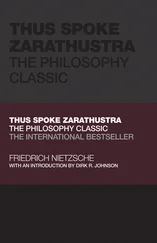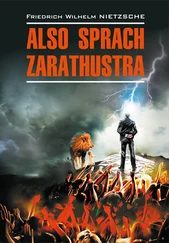The figure of Christ has been introduced often enough into fiction, and many scholars have undertaken to write His life according to their own lights, but few perhaps have ever attempted to present Him to us bereft of all those characteristics which a lack of the sense of harmony has attached to His person through the ages in which His doctrines have been taught. Now Nietzsche disagreed entirely with Renan's view, that Christ was "le grand maitre en ironie"; in Aphorism 31 of "The Antichrist", he says that he (Nietzsche) always purged his picture of the Humble Nazarene of all those bitter and spiteful outbursts which, in view of the struggle the first Christians went through, may very well have been added to the original character by Apologists and Sectarians who, at that time, could ill afford to consider nice psychological points, seeing that what they needed, above all, was a wrangling and abusive deity. These two conflicting halves in the character of the Christ of the Gospels, which no sound psychology can ever reconcile, Nietzsche always kept distinct in his own mind; he could not credit the same man with sentiments sometimes so noble and at other times so vulgar, and in presenting us with this new portrait of the Saviour, purged of all impurities, Nietzsche rendered military honours to a foe, which far exceed in worth all that His most ardent disciples have ever claimed for Him. In verse 26 we are vividly reminded of Herbert Spencer's words "'Le mariage de convenance' is legalised prostitution."
Chapter LXIX. The Shadow.
Here we have a description of that courageous and wayward spirit that literally haunts the footsteps of every great thinker and every great leader; sometimes with the result that it loses all aims, all hopes, and all trust in a definite goal. It is the case of the bravest and most broad–minded men of to–day. These literally shadow the most daring movements in the science and art of their generation; they completely lose their bearings and actually find themselves, in the end, without a way, a goal, or a home. "On every surface have I already sat!…I become thin, I am almost equal to a shadow!" At last, in despair, such men do indeed cry out: "Nothing is true; all is permitted," and then they become mere wreckage. "Too much hath become clear unto me: now nothing mattereth to me any more. Nothing liveth any longer that I love,—how should I still love myself! Have I still a goal? Where is MY home?" Zarathustra realises the danger threatening such a man. "Thy danger is not small, thou free spirit and wanderer," he says. "Thou hast had a bad day. See that a still worse evening doth not overtake thee!" The danger Zarathustra refers to is precisely this, that even a prison may seem a blessing to such a man. At least the bars keep him in a place of rest; a place of confinement, at its worst, is real. "Beware lest in the end a narrow faith capture thee," says Zarathustra, "for now everything that is narrow and fixed seduceth and tempteth thee."
Chapter LXX. Noontide.
At the noon of life Nietzsche said he entered the world; with him man came of age. We are now held responsible for our actions; our old guardians, the gods and demi–gods of our youth, the superstitions and fears of our childhood, withdraw; the field lies open before us; we lived through our morning with but one master—chance—; let us see to it that we MAKE our afternoon our own (see Note XLIX., Part III.).
Chapter LXXI. The Greeting.
Here I think I may claim that my contention in regard to the purpose and aim of the whole of Nietzsche's philosophy (as stated at the beginning of my Notes on Part IV.) is completely upheld. He fought for "all who do not want to live, unless they learn again to HOPE—unless THEY learn (from him) the GREAT hope!" Zarathustra's address to his guests shows clearly enough how he wished to help them: "I DO NOT TREAT MY WARRIORS INDULGENTLY," he says: "how then could ye be fit for MY warfare?" He rebukes and spurns them, no word of love comes from his lips. Elsewhere he says a man should be a hard bed to his friend, thus alone can he be of use to him. Nietzsche would be a hard bed to higher men. He would make them harder; for, in order to be a law unto himself, man must possess the requisite hardness. "I wait for higher ones, stronger ones, more triumphant ones, merrier ones, for such as are built squarely in body and soul." He says in par. 6 of "Higher Man":—
"Ye higher men, think ye that I am here to put right what ye have put wrong? Or that I wished henceforth to make snugger couches for you sufferers? Or show you restless, miswandering, misclimbing ones new and easier footpaths?"
"Nay! Nay! Three times nay! Always more, always better ones of your type shall succumb—for ye shall always have it worse and harder."
Chapter LXXII. The Supper.
In the first seven verses of this discourse, I cannot help seeing a gentle allusion to Schopenhauer's habits as a bon–vivant. For a pessimist, be it remembered, Schopenhauer led quite an extraordinary life. He ate well, loved well, played the flute well, and I believe he smoked the best cigars. What follows is clear enough.
Chapter LXXIII. The Higher Man. Par. 1.
Nietzsche admits, here, that at one time he had thought of appealing to the people, to the crowd in the market–place, but that he had ultimately to abandon the task. He bids higher men depart from the market–place.
Par. 3.
Here we are told quite plainly what class of men actually owe all their impulses and desires to the instinct of self–preservation. The struggle for existence is indeed the only spur in the case of such people. To them it matters not in what shape or condition man be preserved, provided only he survive. The transcendental maxim that "Life per se is precious" is the ruling maxim here.
Par. 4.
In the Note on Chapter LVII. (end) I speak of Nietzsche's elevation of the virtue, Courage, to the highest place among the virtues. Here he tells higher men the class of courage he expects from them.
Pars. 5, 6.
These have already been referred to in the Notes on Chapters LVII. (end) and LXXI.
Par. 7.
I suggest that the last verse in this paragraph strongly confirms the view that Nietzsche's teaching was always meant by him to be esoteric and for higher man alone.
Par. 9.
In the last verse, here, another shaft of light is thrown upon the Immaculate Perception or so–called "pure objectivity" of the scientific mind. "Freedom from fever is still far from being knowledge." Where a man's emotions cease to accompany him in his investigations, he is not necessarily nearer the truth. Says Spencer, in the Preface to his Autobiography:—"In the genesis of a system of thought, the emotional nature is a large factor: perhaps as large a factor as the intellectual nature" (see pages 134, 141 of Vol. I., "Thoughts out of Season").
Pars. 10, 11.
When we approach Nietzsche's philosophy we must be prepared to be independent thinkers; in fact, the greatest virtue of his works is perhaps the subtlety with which they impose the obligation upon one of thinking alone, of scoring off one's own bat, and of shifting intellectually for oneself.
Par. 13.
"I am a railing alongside the torrent; whoever is able to grasp me, may grasp me! Your crutch, however, I am not." These two paragraphs are an exhortation to higher men to become independent.
Par. 15.
Here Nietzsche perhaps exaggerates the importance of heredity. As, however, the question is by no means one on which we are all agreed, what he says is not without value.
A very important principle in Nietzsche's philosophy is enunciated in the first verse of this paragraph. "The higher its type, always the seldomer doth a thing succeed" (see page 82 of "Beyond Good and Evil"). Those who, like some political economists, talk in a business–like way about the terrific waste of human life and energy, deliberately overlook the fact that the waste most to be deplored usually occurs among higher individuals. Economy was never precisely one of nature's leading principles. All this sentimental wailing over the larger proportion of failures than successes in human life, does not seem to take into account the fact that it is the rarest thing on earth for a highly organised being to attain to the fullest development and activity of all its functions, simply because it is so highly organised. The blind Will to Power in nature therefore stands in urgent need of direction by man.
Читать дальше











